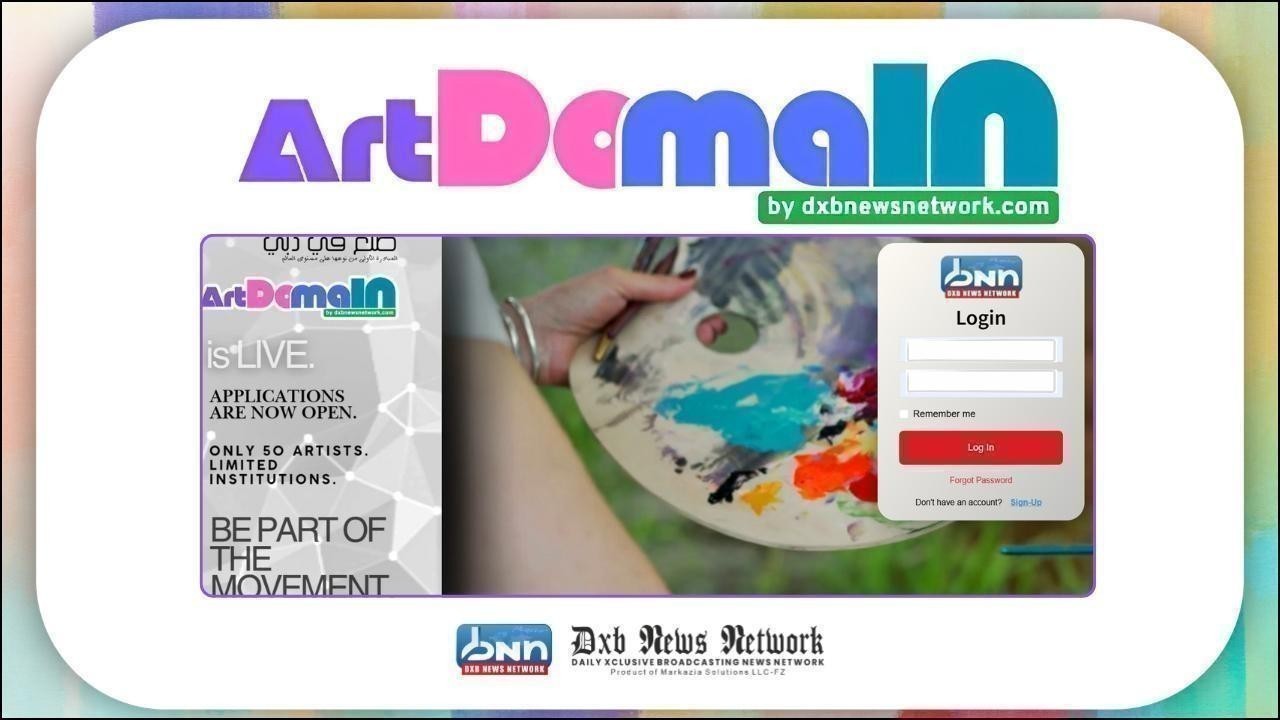
Post by : Zayd Kamal
In recent years, Blockchain technology has emerged as one of the most revolutionary forces in various industries, particularly in finance. Initially associated with cryptocurrencies such as Bitcoin, Blockchain technology is now transforming the banking sector. It holds the promise to change the way banks operate, enhance security, improve efficiency, and offer new opportunities for financial inclusion. As financial institutions explore the full potential of Blockchain, it’s clear that this technology is reshaping the future of banking.
Blockchain technology is a decentralized, distributed ledger system that records transactions across a network of computers in a secure and transparent manner. Each transaction or piece of data is stored in a "block," and once a block is added to the chain, it cannot be altered. This immutable nature of Blockchain ensures data integrity and prevents tampering, which is one of the reasons it has gained significant attention in the financial sector. Unlike traditional banking systems that rely on centralized authorities to verify transactions, Blockchain allows for peer-to-peer transactions, removing the need for intermediaries such as banks. This can lead to reduced costs, faster transactions, and enhanced privacy.
Security is a top priority for banks, and Blockchain technology is revolutionizing the way sensitive financial data is protected. In traditional banking systems, data is often stored in centralized databases, which are vulnerable to cyberattacks and breaches. In contrast, Blockchain technology uses encryption and a decentralized network to protect data. Each transaction on a Blockchain is cryptographically sealed and time-stamped, making it nearly impossible for hackers to alter the data without being detected. This makes Blockchain an extremely secure solution for managing sensitive financial information. As more banks adopt Blockchain, customers can feel more confident that their data and funds are protected against fraud and cybercrime.
One of the most significant benefits of Blockchain technology in the banking industry is its ability to facilitate faster and cheaper transactions. Traditional financial systems involve multiple intermediaries, such as clearinghouses, payment processors, and correspondent banks, all of which contribute to delays and high transaction fees. With Blockchain, transactions are processed directly between parties, bypassing these intermediaries and reducing transaction costs. This enables faster payments, especially in cross-border transactions where Blockchain can eliminate the need for currency conversion and third-party verification. The reduced fees and enhanced speed can greatly benefit consumers and businesses alike, making financial services more efficient and accessible.

Transparency is another key advantage of Blockchain technology in banking. In traditional banking systems, transactions often occur behind closed doors, making it difficult for customers or regulators to monitor activity. With Blockchain, every transaction is recorded on a public ledger that is visible to all participants in the network. This transparency helps to foster trust between banks and their customers. It also makes it easier for regulators to track transactions and identify suspicious activity, which can help combat money laundering and fraud. As more banks adopt Blockchain technology, we can expect a more transparent and accountable financial system, where customers can trust that their money is being managed responsibly.
One of the most exciting features of Blockchain technology is its ability to support smart contracts. These are self-executing contracts with the terms of the agreement directly written into code. Once the conditions of the contract are met, the contract is automatically executed without the need for human intervention. In the banking sector, smart contracts can be used to automate a wide range of processes, such as loan approvals, insurance claims, and asset transfers. By eliminating manual steps, Blockchain can reduce errors, speed up transactions, and lower operational costs. This automation could transform how banks interact with their customers and streamline internal operations.
One of the most promising aspects of Blockchain technology is its potential to increase financial inclusion. Millions of people around the world are still unbanked or underbanked, particularly in developing regions where access to traditional banking services is limited. Blockchain offers a solution to this problem by providing a way for people to access financial services without relying on traditional banks. Using Blockchain, individuals can make peer-to-peer transactions, store value, and even access credit—all through their smartphones. This could be a game-changer for those without access to physical bank branches or those who cannot meet the stringent requirements set by traditional banks. By bringing financial services to underserved populations, Blockchain technology has the potential to empower individuals and promote economic growth in previously neglected regions.
Another area where Blockchain technology is making a significant impact is in identity verification. Traditional methods of verifying identity are often time-consuming, error-prone, and prone to fraud. With Blockchain, individuals can store their identity information securely and access it whenever needed. This data is encrypted and can only be accessed by authorized parties, ensuring privacy and security. In the banking sector, Blockchain-based identity verification can streamline processes such as account opening and loan applications. By using Blockchain for identity management, banks can reduce the risk of identity theft and improve the efficiency of their operations. Additionally, Blockchain offers a more secure alternative to traditional identity verification systems, which are often vulnerable to hacking and fraud.
While the potential of Blockchain technology in banking is immense, there are still several challenges to overcome. Regulatory uncertainty is one of the biggest hurdles. Governments and regulators around the world are still grappling with how to classify and regulate Blockchain-based transactions. Additionally, the technology’s scalability and integration with existing banking systems are ongoing concerns. However, as more financial institutions invest in Blockchain technology and its use becomes more widespread, these challenges are likely to be addressed. Over time, Blockchain could become an integral part of the global banking infrastructure, transforming the way financial services are delivered and ensuring greater security, efficiency, and accessibility for all.
Blockchain technology is changing the way banks work. It is helping make banking faster, safer, and cheaper for everyone. By using Blockchain technology, banks can protect customer data better, make payments faster, and reduce costs. Blockchain technology also helps make transactions clear and honest, which builds trust. With Blockchain, banks can use something called smart contracts that automatically do tasks like loans without needing people to do it. This technology is also bringing more people into the banking world, even if they don’t have a bank nearby. Blockchain technology is making banking simpler and more inclusive, allowing people to take part in financial activities without middlemen. As Blockchain technology grows, it will keep changing the future of banking, making it more secure, easy to use, and fair for everyone.
This article was created by dxb news network for informational purposes only. The views and opinions expressed in the article are those of the author and do not necessarily reflect the views of dxb news network. Always verify financial and technological information from trusted sources before making decisions.
Blockchain technology, future of banking, Blockchain, financial inclusion, smart contracts, banking security, digital transactions, decentralized network, peer-to-peer transactions, banking transformation, Blockchain in finance, cross-border payments, transparency in banking, Blockchain for banks, financial services innovation
#trending #latest #BlockchainTechnology, #FutureOfBanking, #Blockchain, #FinancialInclusion, #SmartContracts, #BankingSecurity, #DigitalTransactions, #DecentralizedNetwork, #PeerToPeerTransactions, #BankingTransformation, #BlockchainInFinance, #CrossBorderPayments, #TransparencyInBanking, #BlockchainForBanks, #FinancialServicesInnovation #breakingnews #worldnews #headlines #topstories #globalUpdate #dxbnewsnetwork #dxbnews #dxbdnn #dxbnewsnetworkdnn #bestnewschanneldubai #bestnewschannelUAE #bestnewschannelabudhabi #bestnewschannelajman #bestnewschannelofdubai #popularnewschanneldubai










Sheikh Mansour Arrives in Kuwait to Boost UAE-Kuwait Relations
Sheikh Mansour arrives in Kuwait for an official visit to meet the Emir, aiming to strengthen UAE-Ku

Story :The Merchant of Manchester - by Dr Amrinder Pal Singh
Story of loss, Kindness, Betrayal… and Legacy

Rashid Al Obad Appointed Director General of Shams
Sheikh Sultan issues Emiri Decree appointing Rashid Al Obad as Director General of Sharjah Media Cit

Dubai’s Government Best Practices Series 2025 Highlights Innovation
The Government Best Practices Series 2025 in Dubai focused on government innovation, digital service

Dubai Hosts GenAI Masterclass for Future Family Leaders
Dubai Centre for Family Businesses held a GenAI masterclass to train 24 young leaders in using AI fo

ArtDomain by DXB News Network Opens to Strong Global Response — Applications Begin for A50 and The Art Guild.
ArtDomain by DXB News Network Opens to Strong Global Response — Applications Begin for A50 and The A

Dembele's Goal Gives PSG a 1-0 Win Over Arsenal in Semi-final
Ousmane Dembele scores early to give PSG a 1-0 win over Arsenal in their Champions League semi-final